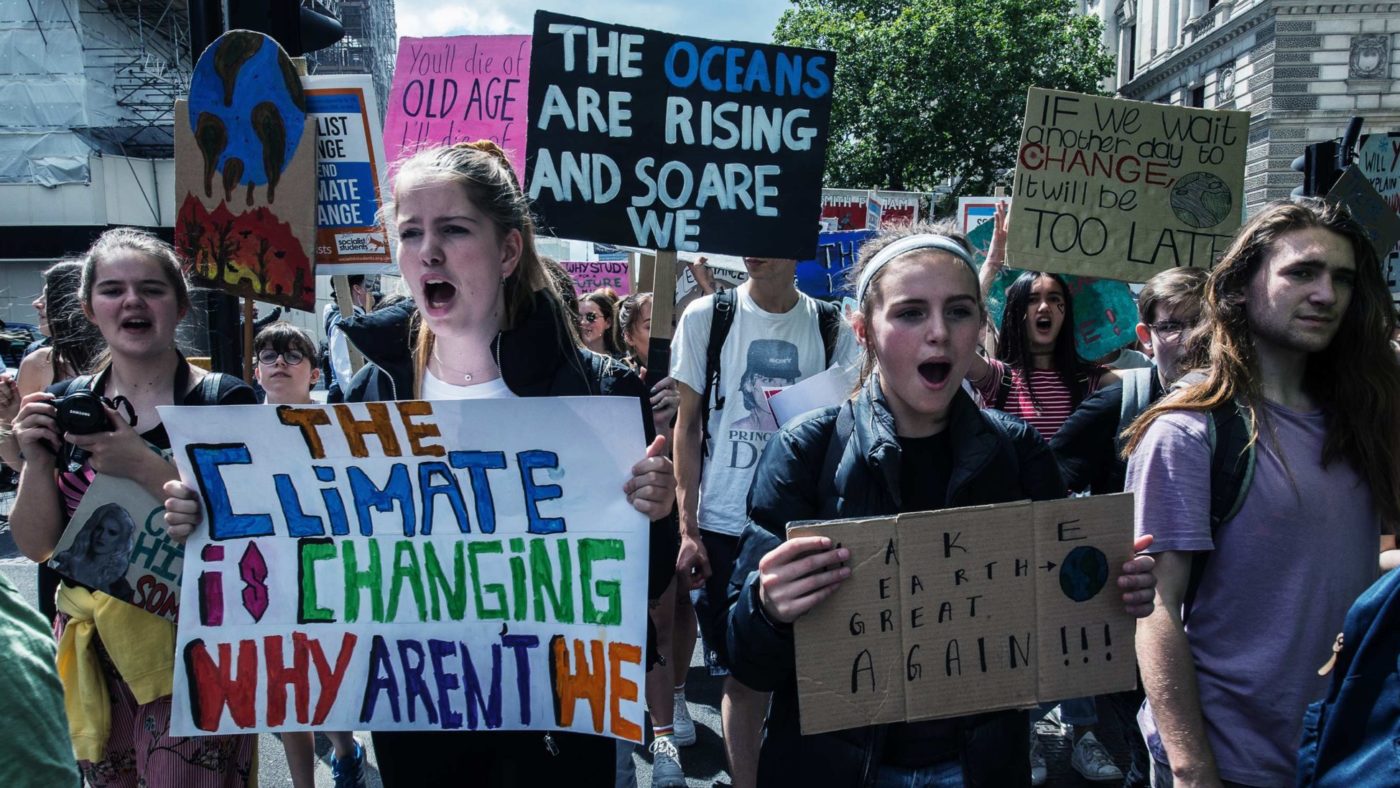If you believe most commentators and environmental campaigners, the world is facing impending collapse due to climate change. Apocalyptic pronunciations are wielded to spell doom and gloom, existential crisis, and even, in the words of one well-known green group, extinction. The remedies being promoted, de-growth, economic deceleration, and ever more government control over our lives all stem from the same deeply held pessimism.
However, cataclysmic prophecies do a disservice to the environmental movement. ‘Points of no return’ have become a familiar adage. Back in 1989 the then UN Environment Director, Mostafa Tolba said that inaction by the year 2000 would incur “an environmental catastrophe which will witness devastation as complete, as irreversible, as any nuclear holocaust”. In 2006, Al Gore said that unless drastic action is taken “within the next 10 years, the world will reach a point of no return.” Only a few months ago, the doyenne of the US left Alexandria Ocasio-Cortez said that “the world is going to end in 12 years if we don’t address climate change”.
Of course, it is highly unlikely that the world will actually ‘end’ by 2031. Ultimately, when prominent individuals proclaim such doomsday scenarios that then prove untrue, people develop a mindset of scepticism towards the climate establishment and their predictions.
Emphasising the ways to tackle climate change is a far more constructive approach. In his book Enlightenment Now, Steven Pinker points to research showing that people are likelier to accept the fact of global warming “when they are told that the problem is solvable by innovations in policy and technology than when they are given dire warnings about how awful it will be”.
Not only is optimism a better tactic from a human psychology perspective, it is also preferable when viewed through the evidence-based lense of economics, politics, and the hard science itself. Indeed, what the pessimism of the modern green movement most strikingly embodies is a lack of hope in human progress and innovation. In portraying a climate apocalypse that only governments can supposedly save us from, environmentalists underplay the creativity and power of the market to tackle these issues.
It’s not just the climate where doom-mongering predictions fail to account for human ingenuity. Look at the likes of Paul Ehrlich, the academic whose 1968 book The Population Bomb claimed the world was heading for unavoidable mass famine. What Ehrlich and some of his contemporaries failed to realise was that a combination of market forces and scientific innovation would mean higher yields, and dramatically cheaper food as the 20th century progressed.
The truth is that we cannot face climate change without unleashing those same market forces and human ambition that have made the world so prosperous and developed. Advances in renewable energies such as wind and solar, the potential for nuclear fusion and Small Modular Reactors, the liquid natural gas boom, carbon capture and storage technology, more efficient energy transmission lines and battery storage – these are all market innovations that are shaping our technological capacity to mitigate the effects of climate change, if not overcome it.
This doesn’t mean governments can’t play a role in promoting greener policies and climate solutions. But they need to go beyond simply taxing and banning things. Instead, governments should embrace policies that allow the private sector to get on with the kind of green innovation that is so essential.
Rallying young people is also crucially important. Though their policy prescriptions may differ from free market voices, the likes of Extinction Rebellion and Fridays4Future have helped push the environment way up the political agenda – and we are already seeing politicians in this general election campaign.
It’s up to those who favour a more economically liberal approach to climate change to harness both the awareness and enthusiasm of young people, and make clear how much good work has already been done to make our economy greener. The good news is that there are organisations out there, such as the American Conservation Coalition and my own British Conservation Alliance, who are committed to empowering this new generation of environmental leaders. ACC and BCA understand that economic and environmental success are not mutually exclusive, but can rather work together to ensure prosperity for both humanity and the planet. When we combine that youthful enthusiasm with the awesome power of the free market, anything is possible.
Hope conquers fear. Optimism trumps pessimism. Ambition breeds progress. Progress beats climate change.
And if that hasn’t convinced you, then maybe science will. Optimists live 15% longer on average. Try it!
Click here to subscribe to our daily briefing – the best pieces from CapX and across the web.
CapX depends on the generosity of its readers. If you value what we do, please consider making a donation.


